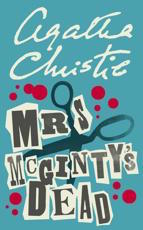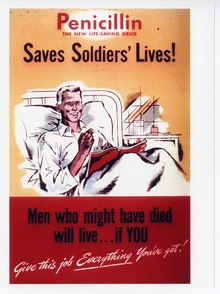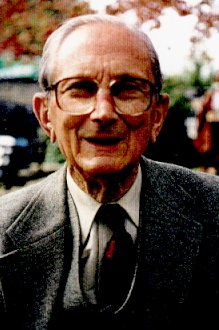
Poirot Score: 60
Mrs McGinty’s Dead
☆☆☆
Reasons for the Poirot Score:
This has a low Poirot Score because the solution is arbitrary. Anyone of the characters in Broadhinny could have been associated with the Where are they now? article in the Sunday Comet, that sets off a train of events that leads to two murders. Secondly, the motive is unacceptably weak. There was no evidence that Mrs McGinty was blackmailing anyone, and she was never a threat. Mrs McGinty was excited that something interesting had occurred in her hard, mundane everyday grind of a life. The link between the glamour of the tabloid press, and Mrs McGinty’s existence was probably all that was in her mind. She was an honest, hard-working and staunchly upright woman. Also, it was a ‘so what?’ non-story that someone may or may not be the child of a person found innocent of murder, thirty years previously.
This book has the wonderfully funny Ariadne Oliver, which makes it a very entertaining read.
Click Here for full review (spoilers ahead)
Trivia
Dedicated ‘To Peter Saunders in gratitude for his kindness to authors.’
Sir Peter Saunders (1911 – 2003)
It is no co-incidence that this book was dedicated to Peter Saunders, the theatre impresario, when the main character in the book is a budding young playwright, Robin Upton. Upton and Ariadne Oliver argue over how to translate Mrs. Oliver’s fictional Finn detective story onto the stage.
Sanders and Christie, unlike Upton and Oliver, had a very profitable relationship. Sanders produced The Mousetrap, the longest running play in the world. Saunders became rich and successful putting on Christie plays in the West End, London’s theatre land. He also produced Murder at the Vicarage, Black Coffee, Witness For The Prosecution, The Spider’s Web, The Unexpected Guest and The Hollow.

The Green Bay Tree: a play
I mean it’s not green bay trees or anything like that. It’s thrills and murders and clean open-air fun
Robin Upton, in this novel, is objecting to Ariadne Oliver implying that her fictional detective was homosexual, or asexual.
The Green Bay Tree, is play by Mordaunt Shairp [1933], which explored the homoerotic relationship between a man and a younger man, without being too explicit. Homosexuality was not legalised in England and Wales until the 1967 Sexual Offences Act, for consenting adults over the age of 21 in private.
Interestingly The Green Bay Tree premiered at St Martin’s Theatre in 1933, which is another Christie/Saunders link since St Martin’s was the home of The Mousetrap from 1974-2020 when theatres closed due to Covid19.
Shairp was an Oxford-educated schoolmaster, who produced two plays for the commercial theatre and also wrote cinema screen-plays.
‘He’s got a Rolls Bentley’
Rolls-Royce and Bentley were both English car manufactuerers. In the Great Depression after World War 1, Bentley went into receivership, and was bought by Rolls-Royce in 1931.
A taxi-dancer
OED: A woman (or man) whose services as a dance-partner may be hired; a professional dance-partner.
Blown tins of beef:
The process of putting food in cans to preserve it, really started with Napoleon. Napoleon wanted his army to rule the world, but supply chains of good food were the critical issue. In 1809 Nicholas Appert found that food cooked inside a sealed glass jar would not spoil unless the seals were broken. Another Frenchman thought tin cans would be more portable than glass, and sold the patent to an English company, who by 1817 made a fortune out of the process, selling food to the British Army and Navy, fighting Napoleon. The original cans were individually hand made and sealed with lead solder. This was all before Louis Pasteur was born in 1822.
Sadly, the next push for tin cans of food was World War1 for exactly the same reason. Huge automated factories made and sent food supplies to the trenches.
If a tin can has a crack or fault in it, air and bacteria can get in, so putrefying the food. It is ‘blown’ and the food should be discarded. In Mrs McGinty’s Dead Poirot was horrified to be offered a can of blown beef.
There was a famous outbreak of typhoid in 1964 in Aberdeen I remember from my childhood. A cracked can was infected with typhoid from cooling the hot tins in the waters of the Uruguay River, as part of the canning process. This then contaminated a shop’s meat slicer thousands of miles away, when that corned beef was opened in Scotland. Over 400 people were infected with some fatalities.
Poirot was correct to be fastidious.
Penicillin and the NHS both mentioned in this novel published in 1952. Christie was always very up to date.
Aneurin Bevan launched the new National Health service on 5 July 1948, less than four years before this novel was published. The NHS principals were:
a) that it meet the needs of everyone
b) that it be free at the point of delivery
c) that it be based on clinical need, not ability to pay.
Seventy three years on, those are still our NHS core values.

Although Fleming discovered penicillin in 1928 and published his paper in 1929, it was not till Flory and Chain started work on this new chemical that killed bacteria in the 1940s that it was taken seriously as something potentially life-saving. Again war was the impetus for innovation. Flory, Chain and their team including Norman Heatley worked at the Sir William Dunn School of Pathology, Oxford. The first ever patients were given penicillin in the old Radcliffe Infirmary on the Woodstock Road, Oxford, a short cycle from the Dunn School. In the early days all the treated patients’ urine was collected by the team, and brought back to the Dunn School to extract the penicillin, again. Norman Heatley told us he spent much time peddling fast between the two sites.
Florey and Chain moved the production of penicillin to America in 1941 and saved many lives. When I was a medical student in the 1970s Lady Florey was still the best person to help you adjust your microscope in the laboratories of the Dunn School.
In Oxford in the 1980s Tony and I saw an elderly gentleman fall from his bicycle. We went to help, being junior doctors. The gentleman was Norman Heatley, fortunately unhurt. Utterly charming and interesting, I treasure the memory of walking him and his bike safely home.


